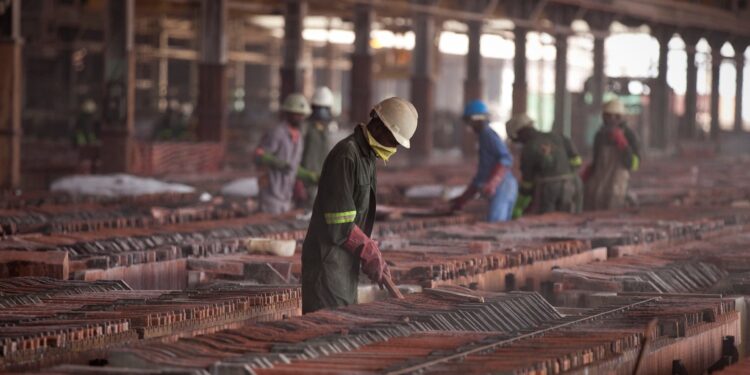Copper prices rose by more than 21% during the current year, and its price is expected to reach $15,000 per ton in the next two years, an increase of 46% from current prices, according to what the American “Business Insider” website quoted Jeff Corey, former head of commodity research at Goldman Sachs, and current chief strategist, Energy Pathways.
Copper prices
Currie expected copper to rise to $15,000 per ton, and the prices of this metal had reached more than $10,779 per ton, at the time of preparing this report, more than doubling their lowest levels during the (Covid-19) epidemic in early 2020.
“It’s the most logical trade I’ve ever seen in over 30 years of doing this,” Corey said. “I quote many of our clients and other market participants saying it’s the most convincing trade they’ve ever seen.”
Currie adds that this is because copper is suffering from an unprecedented imbalance between supply and demand, and it seems that demand for this commodity will deepen, but investment and production are still missing.
To explain why he is betting on such an upside risk, Currie uses the acronym RED – the initials for “redistribution”, “environmental policy” and “deglobalization”.
Reasons for the rise
According to Currie, there are three reasons for the expected increases that are more than a passing phase, as follows:
- Redistribution of wealthCurrie pointed out that low-income people have long been the largest consumers of goods, so a policy that redistributes wealth to this group is a driver of increased demand for materials such as copper.
Currie infers the redistribution of wealth by the decline in the unemployment rate in the United States, as low-income people benefit from this. - Environmental factorsConcern about environmental constraints has sparked an industry-wide race for copper, which is used in everything from solar energy to electric car batteries.
- artificial intelligenceCurrie pointed out that artificial intelligence is also working to drive demand. Ultimately, the emerging technology depends on an improved electricity grid, which will actually be determined by copper. The decline in globalization (trade fragmentation between global blocs) has become much greater than analysts imagine, which translates into increased military spending.



